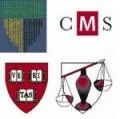
Harvard-MIT-Yale Cyberscholar Working Group
At Yale Law School
Wednesday, November 17, 2010 at 6:00PM
Yale Law School, faculty lounge on the second floor
New Haven, CT
Announcement at Yale ISP
The "Harvard-MIT-Yale Cyberscholar Working Group" is a forum for fellows and affiliates of the Comparative Media Studies Program at MIT, Yale Law School Information Society Project, and the Berkman Center for Internet & Society at Harvard University to discuss their ongoing research.
This month's presenters will include:
Japanese Youths, Mobile Phones, and Social Media
Toshie Takahashi, Faculty Fellow, Berkman Center for Internet & Society, Harvard University
Young people of today have been described as ‘digital natives’. The term has been criticised for being essentialist, technologically deterministic or western-centric. I will touch on some of the general criticisms on the digital natives discourse before turning to how the notion has been taken up and debated in the social context of Japan. By way of a background, I will offer an account of the historical and current trends of mobile internet use among Japanese youth. I will then delve into a number of issues concerning Japanese youths and mobile media in everyday life, using data from my on-going ethnographic research, which I started in 2000 and had continued to do periodically since. I shall frame the discussion in terms of the related notions of freedom and control, opportunities and risks, and de-traditionalisation and reflexive traditionalisation. Finally, I examine the implications for young people and digital media in today’s mobile-saturated society.
Toshie Takahashi is a faculty fellow at the Berkman Center for Internet & Society at Harvard University. She is also Associate Professor in the Department of Communication and Media Studies, Rikkyo University, in Tokyo, Japan. Before joining the Berkman Center, she was appointed visiting research fellow at the Department of Education at the University of Oxford.
Textual Tunnel-Hops and Narrative Chutes-and-Ladders: The HTML Link as an Uncertain Object of Journalistic Evidence
C.W. Anderson, Visiting Fellow at the Information Society Project, Yale Law School
To date, communications research has incorporated science and technology studies ("STS") primarily as a way of providing a nuanced perspective on how new technologies impact newsroom innovation and media management. The larger contributions of science and technology as a field, however, lie in the ways that it has helped us rethink the roles played by both communities and material objects in the ratification of scientific evidence. Through a preliminary case study of the hyperlink -- why, after nearly 20 years, do so few traditional news outlets link out to other news outlets -- I bring this ontological perspective to bear on questions about journalism and media practice more generally. I argue first for an "object oriented" approach to understanding journalism (one that supplements traditional scholar concerns with objectivity) before turning to a more in-depth overview of the literature on hyperlinks. I conclude by suggesting some ways in which this "object-oriented" approach to journalistic practice can be broadened and used to study other media phenomena. The paper draws on three years of ethnographic research in newsrooms across Philadelphia, Pennsylvania, as well as on current work on news aggregation in New York City.
C.W. Anderson (Ph.D. Columbia) is a Visiting Fellow at the Information Society Project, Yale Law School, as well as an Assistant Professor at College of Staten Island (CUNY). His research interests lie at the intersection of journalistic practices, new media technologies, and social and communications theory. http://www.library.csi.cuny.edu/mediaculture/faculty/anderson.html
Recursive Learning in Computer Games. Game Design & Learning Theories
Konstantin Mitgutsch, Max Kade visiting researcher at the Education Arcade of the Comparative Media Studies Program of the MIT
Are computer games a constructive tool to foster learning? In this talk a novel concept of experience-based recursive learning through playing computer games will be outlined. By relating to investigations into the process of experiencing by philosophers like Aristotle, Francis Bacon, Hans-Georg Gadamer, Edmund Husserl and Gregory Bateson and by combining these insights with results of learning and cognitive sciences the elemental patterns of learning in games will be discussed. In particular the key role of patterns such as anticipations, confrontation and refutation will be highlighted and illustrated by a case study. In the summer of 2010 the game "Afterland" was developed at the Singapore-MIT GAMBIT Game Lab. The game is based on the theory of recursive learning and is used as research tool to observe learning patterns in games.
Konstantin Mitgutsch is a Max Kade visiting researcher at the Education Arcade of the Comparative Media Studies Program of the MIT. He studied Media Education and Philosophy of Education at the University of Vienna and the Humboldt University Berlin and earned a M.A. in Education Science, Sociology, Media Studies and Philosophy (2003) and a PhD in 2009. He is participating as an expert member for the Austrian Federal Office for the Positive Assessment of Computer and Console Games and is on the expert council of the Pan European Game Information (PEGI).
